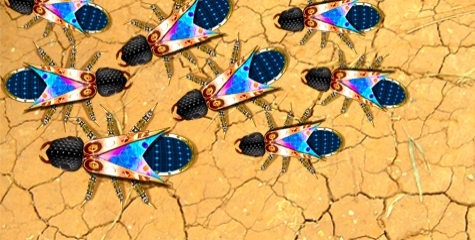WI-WE Progress
| Progress: 78.40% WWI-WE Version: 1 | |
| 0 | mandatory questions pending |
| 26 | questions total |
| 20 | questions answered |
| 20 | questions completed |
| 6 | questions pending |
Mapping Wild Cards
Inspired by: FP7 » Cysects attack

Originally submitted by: Aharon Hauptman
List of all contributors by versions (mouse over)
Last changed by: Aharon Hauptman
WI-WE status:
.png)
